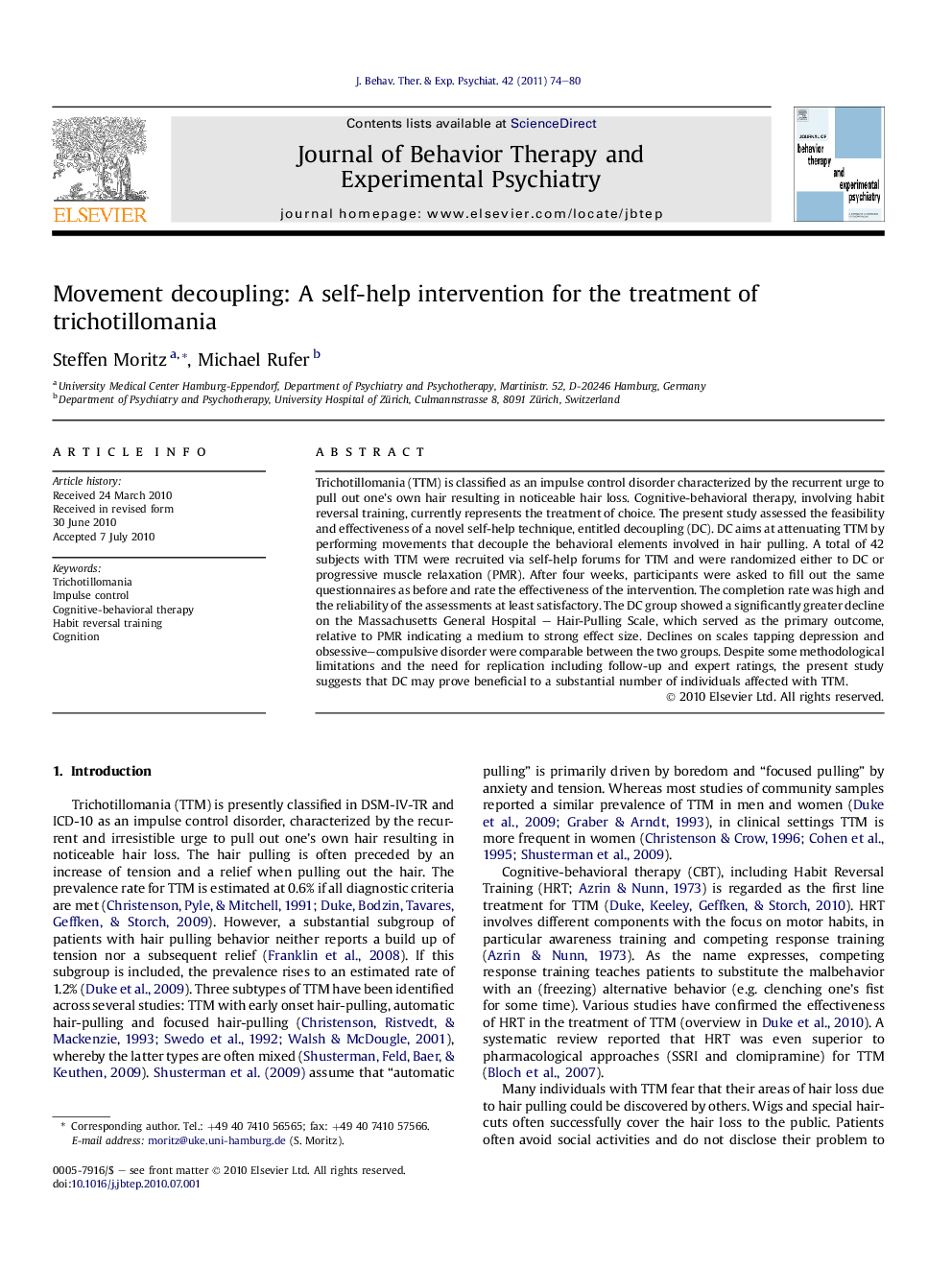| Article ID | Journal | Published Year | Pages | File Type |
|---|---|---|---|---|
| 910430 | Journal of Behavior Therapy and Experimental Psychiatry | 2011 | 7 Pages |
Trichotillomania (TTM) is classified as an impulse control disorder characterized by the recurrent urge to pull out one’s own hair resulting in noticeable hair loss. Cognitive-behavioral therapy, involving habit reversal training, currently represents the treatment of choice. The present study assessed the feasibility and effectiveness of a novel self-help technique, entitled decoupling (DC). DC aims at attenuating TTM by performing movements that decouple the behavioral elements involved in hair pulling. A total of 42 subjects with TTM were recruited via self-help forums for TTM and were randomized either to DC or progressive muscle relaxation (PMR). After four weeks, participants were asked to fill out the same questionnaires as before and rate the effectiveness of the intervention. The completion rate was high and the reliability of the assessments at least satisfactory. The DC group showed a significantly greater decline on the Massachusetts General Hospital – Hair-Pulling Scale, which served as the primary outcome, relative to PMR indicating a medium to strong effect size. Declines on scales tapping depression and obsessive–compulsive disorder were comparable between the two groups. Despite some methodological limitations and the need for replication including follow-up and expert ratings, the present study suggests that DC may prove beneficial to a substantial number of individuals affected with TTM.
Research highlights► New intervention for trichotillomania, decoupling, was superior to active control on target symptoms. ►Internet therapy proved feasible in patients with trichotillomania, high completion rate. ►Stability of the effects remain to be established
